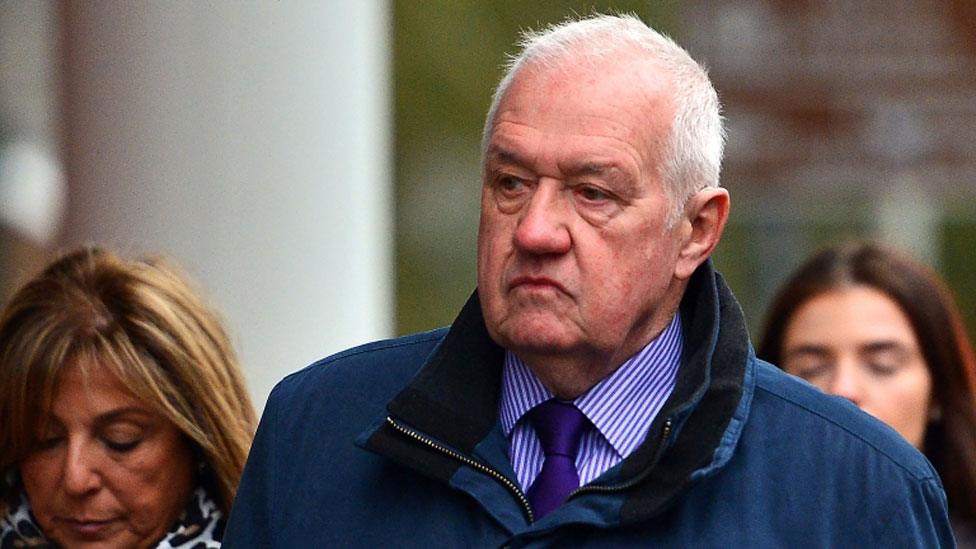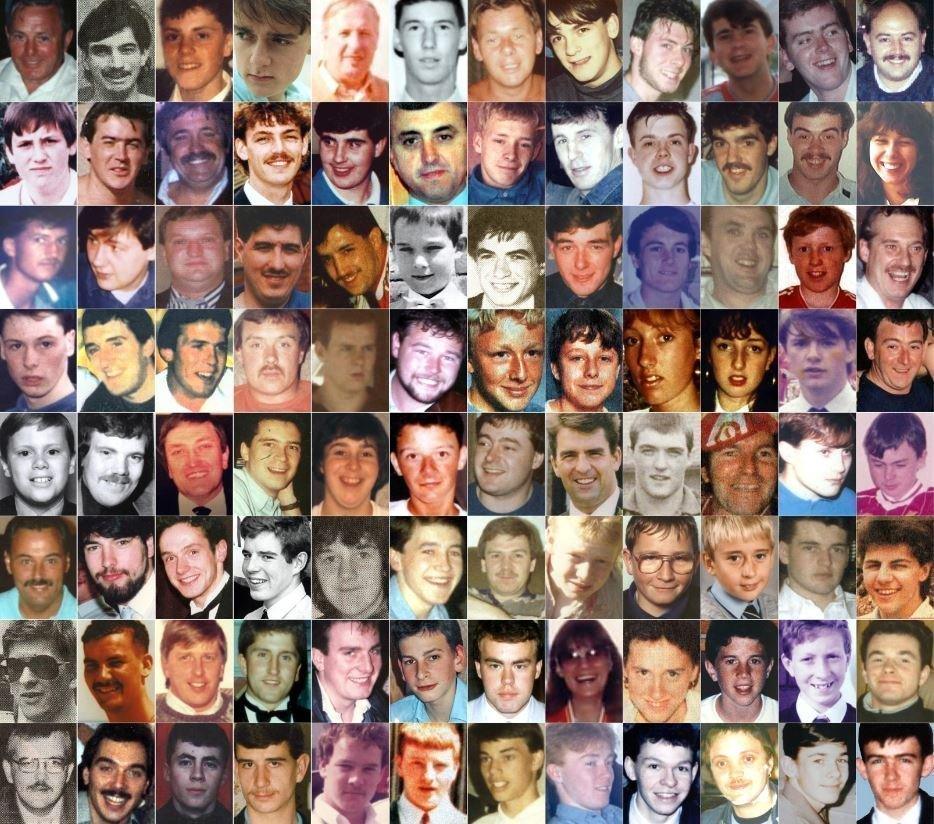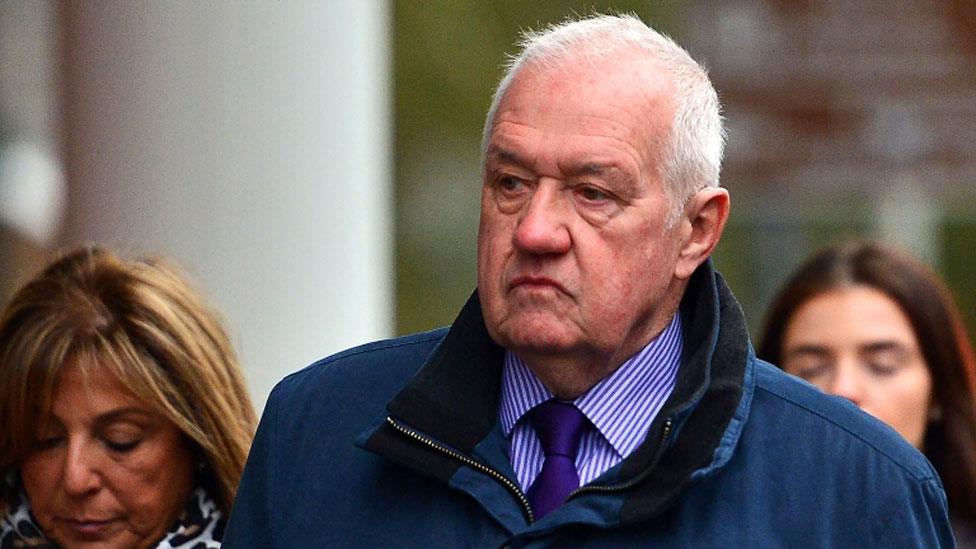Hillsborough trial: Commander's 'failings' led to deaths of fans
- Published

David Duckenfield was the match commander at Sheffield Wednesday's Hillsborough stadium in 1989
The "extraordinarily bad" failings of Hillsborough match commander David Duckenfield led to the deaths of 96 football fans, a retrial has heard.
Mr Duckenfield, 75, denies the gross negligence manslaughter of 95 Liverpool supporters on April 15, 1989.
He had "ultimate responsibility" for the police operation to secure the fans' safety at the FA Cup semi-final, Preston Crown Court heard.
His failures "contributed substantially to the deaths," the prosecution said.
Richard Matthews QC, prosecuting, told jurors during the opening of the retrial that Mr Duckenfield was a chief superintendent or a "very senior" South Yorkshire Police officer at the time.
"David Duckenfield's failures to discharge this personal responsibility were extraordinarily bad and contributed substantially to the deaths of each of those 96 people who so tragically and unnecessarily lost their lives," he said.
"It was so bad, so reprehensible, so blameworthy and unforgivable that it amounts to a gross failure," he added.
'Gross failure'
The court heard how 24,000 Liverpool fans were directed to the Leppings Lane end of Sheffield Wednesday's Hillsborough stadium, ahead of the 3pm kick-off against Nottingham Forest.
There were limited turnstiles serving a bottleneck of a very large crowd ahead of the 3pm kick-off, Mr Matthews said.
Mr Duckenfield, of Ferndown, Dorset, agreed to requests to open an exit gate to the stadium after crushing built up outside the turnstiles before the match, the prosecution told the court.
Once through exit gate C, spectators saw a tunnel marked "standing" which led to the central pens on the terrace where the fatal crush happened.

The people who lost their lives in the Hillsborough disaster
"David Duckenfield gave no thought to the inevitable consequence of the flood of people through gate C, nor did he make any attempt to even monitor what was occurring, let alone avert the tragedy," Mr Matthews said.
Under the law at the time, there can be no prosecution for the death of the 96th victim, Tony Bland, because he died more than a year and a day after his injuries were caused.
The trial is expected to last up to seven weeks.
- Published7 October 2019
